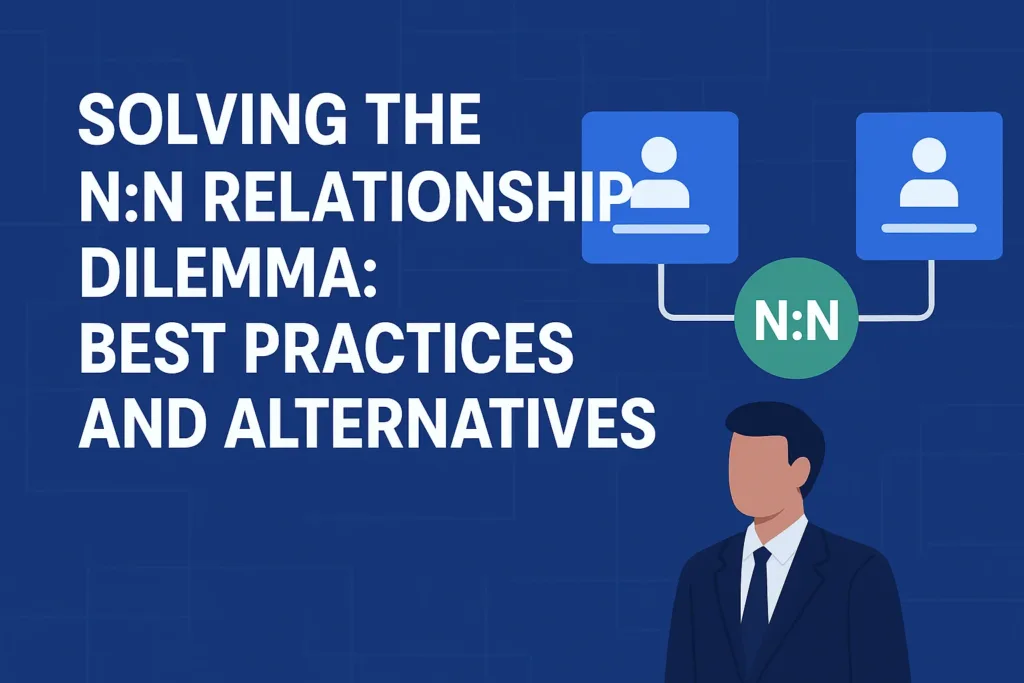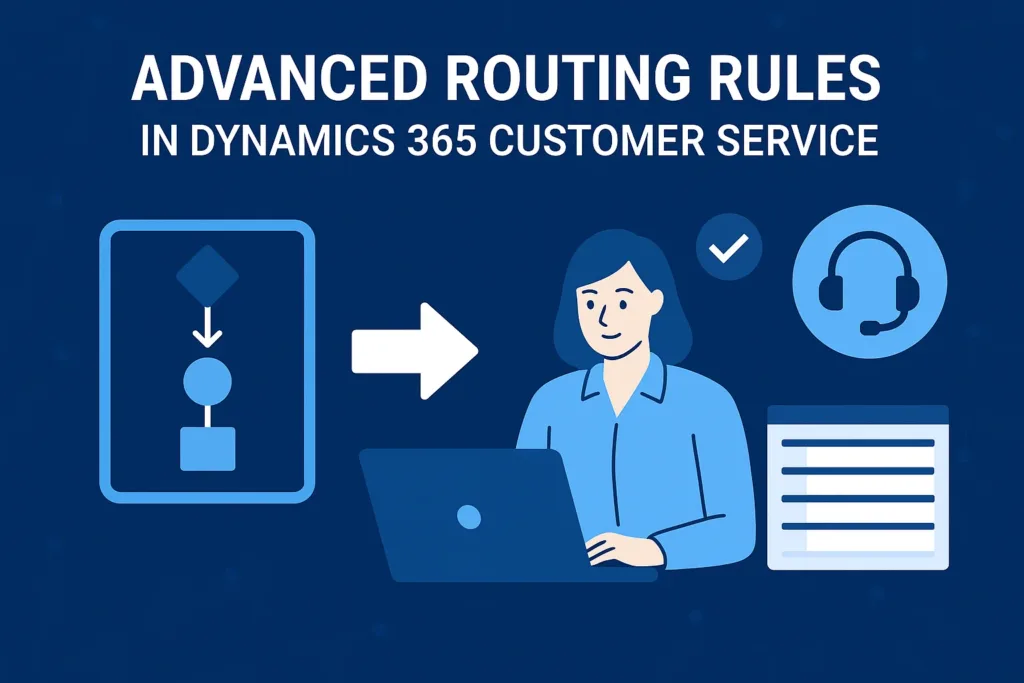Table of Content
In Microsoft Dynamics 365, understanding when to use standard entities and when to build custom entities can make a major difference in how effectively your sales team tracks performance, manages leads, and closes deals. Making the right choice impacts scalability, usability, and long-term maintenance of your CRM system.
Let’s explore how to decide between standard and custom entities, along with some real-world scenarios and best practices that will help your team achieve better sales tracking results.
Understanding Standard Entities in Dynamics 365
Standard entities are pre-built components in Dynamics 365 that come ready to use. They include familiar entities like:
- Accounts – To store company information.
- Contacts – To manage individual customer data.
- Opportunities – To track potential sales deals.
- Leads – To record potential customers before qualification.

These entities are ideal when your sales processes align closely with Microsoft’s built-in CRM logic.
When to Use Standard Entities
You should rely on standard entities when:
- Your process matches Dynamics 365’s default CRM workflow.
- You want faster implementation with minimal customization.
- You prefer seamless integration with existing modules like Sales, Marketing, or Customer Service.
- You aim for lower maintenance and reduced complexity.
💡 Example: A small to mid-sized sales team that follows a traditional lead-to-opportunity sales funnel can fully leverage standard entities without customizations.
What Are Custom Entities?
Custom entities are user-defined objects that you create to handle data or processes not covered by standard entities. These entities allow organizations to tailor Dynamics 365 according to unique sales tracking or operational needs.
✅ When to Use Custom Entities
You should consider creating a custom entity when:
- Your sales process includes non-standard data types or workflows.
- You need to track performance metrics not available in standard entities.
- Your business model doesn’t fit the typical CRM framework.
- You require custom reports or automation specific to your business.
💡 Example: If your sales team tracks partner performance, commission structures, or territory-based goals, a custom entity can help record and visualize this data effectively.
Comparison Table: Standard vs. Custom Entities
| Criteria | Standard Entities | Custom Entities |
|---|---|---|
| Setup Time | Quick and ready to use | Requires design and development |
| Maintenance | Low, handled by Microsoft updates | Moderate to high, depends on customization |
| Scalability | High, within CRM structure | Flexible but needs optimization |
| Integration | Seamless with Dynamics modules | May need connectors or APIs |
| Use Case Example | Tracking leads and opportunities | Tracking partner commissions or custom KPIs |
How to Decide: Key Considerations
When evaluating whether to use a standard or custom entity, keep the following in mind:

1. Business Complexity
If your sales operations follow standard CRM structures (Leads → Opportunities → Accounts), standard entities suffice. For complex hierarchies or multi-layered approval systems, custom entities are better.
2. Reporting Requirements
If you need advanced reports like team-specific KPIs or goal achievements outside the typical CRM scope, custom entities offer flexibility.
3. Future Scalability
Custom entities can be scaled and extended but require more long-term management. If future updates are uncertain, standard entities ensure smooth compatibility with Microsoft’s ecosystem.
4. Integration Needs
When your CRM integrates with third-party tools (like Power BI, Outlook, or ERP systems), standard entities simplify data mapping.
Best Practices for Sales Team Tracking
To make the most out of your entity setup in Dynamics 365, follow these best practices:
- Document your data model before creating new entities.
- Avoid duplication of existing fields or functionality.
- Use business rules and Power Automate flows to streamline workflows.
- Monitor performance regularly using Power BI dashboards.
- Train your team to understand how each entity supports their sales targets.
Optimize Entity Performance with SkySoft Connections
At SkySoft Connections, we specialize in helping businesses design tailored Dynamics 365 environments. Whether you need to customize entities for advanced sales tracking, automate processes with Power Automate, or create interactive Power BI reports, our certified consultants can help.
With over 40,000 hours of successful CRM and Power Platform projects, we ensure your Dynamics 365 solution is not only functional but fully optimized for your sales growth.
🌐 Services We Offer:
- Microsoft Dynamics 365 CRM Customization
- PowerApps and Power Automate Development
- Power BI Dashboards and Data Visualization
- System Architecture and Integration Solutions
Empower your sales team with smarter entity management and real-time insights.
Partner with SkySoft Connections to make Dynamics 365 work your way.
Conclusion
Choosing between standard and custom entities depends on how unique your sales process is. Standard entities provide simplicity and speed, while custom entities deliver flexibility and precision.
The right balance ensures a scalable, efficient, and data-driven CRM system that helps your sales team reach new heights.
Read more : nn relationship best practices alternatives
FAQ’s
Standard entities are pre-built tables like Accounts, Contacts, Leads, and Opportunities that come with Dynamics 365.
Use custom entities when your organization needs to track data or processes not supported by default CRM entities.
Yes, they can be linked through relationships, allowing data to flow seamlessly between both.
SkySoft Connections offers expert Dynamics 365 customization, Power Platform integration, and data visualization solutions tailored for your business needs.
 is a software solution company that was established in 2016. Our quality services begin with experience and end with dedication. Our directors have more than 15 years of IT experience to handle various projects successfully. Our dedicated teams are available to help our clients streamline their business processes, enhance their customer support, automate their day-to-day tasks, and provide software solutions tailored to their specific needs. We are experts in Dynamics 365 and Power Platform services, whether you need Dynamics 365 implementation, customization, integration, data migration, training, or ongoing support.
is a software solution company that was established in 2016. Our quality services begin with experience and end with dedication. Our directors have more than 15 years of IT experience to handle various projects successfully. Our dedicated teams are available to help our clients streamline their business processes, enhance their customer support, automate their day-to-day tasks, and provide software solutions tailored to their specific needs. We are experts in Dynamics 365 and Power Platform services, whether you need Dynamics 365 implementation, customization, integration, data migration, training, or ongoing support.


